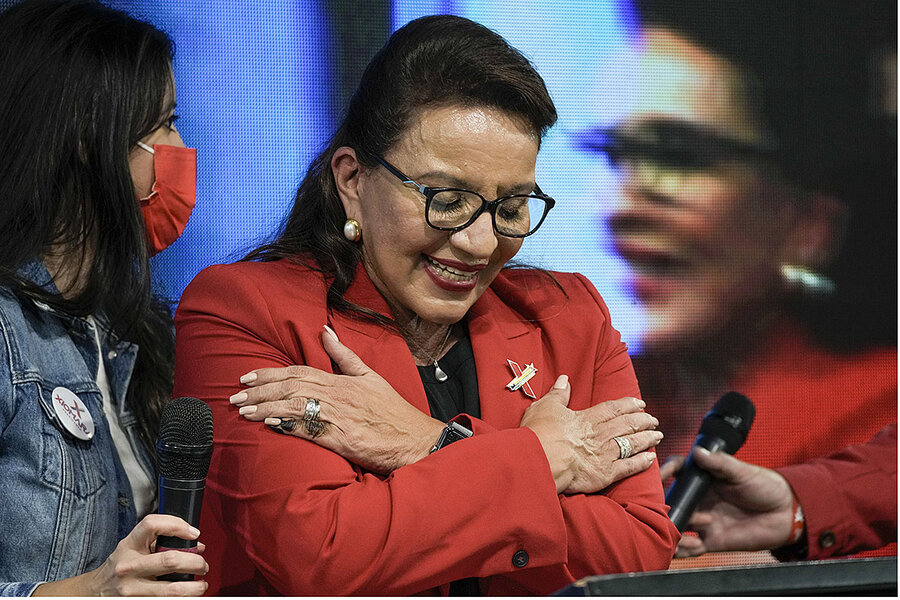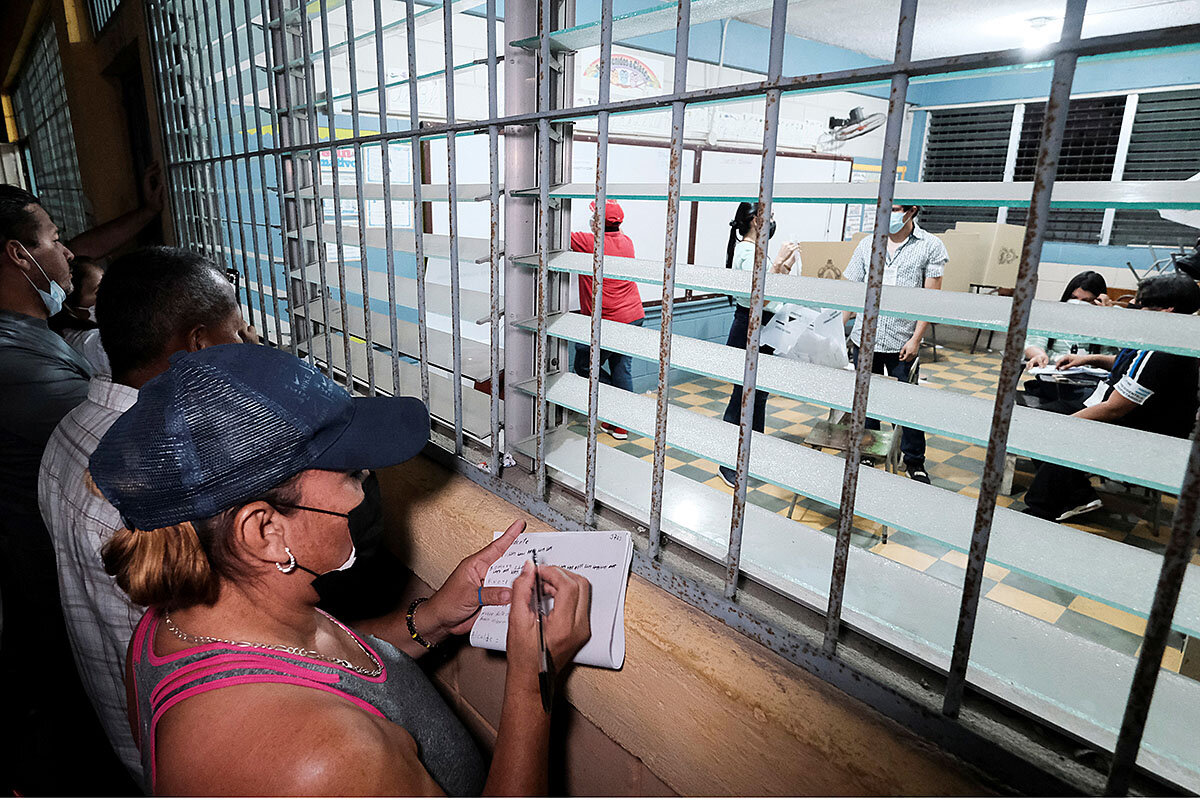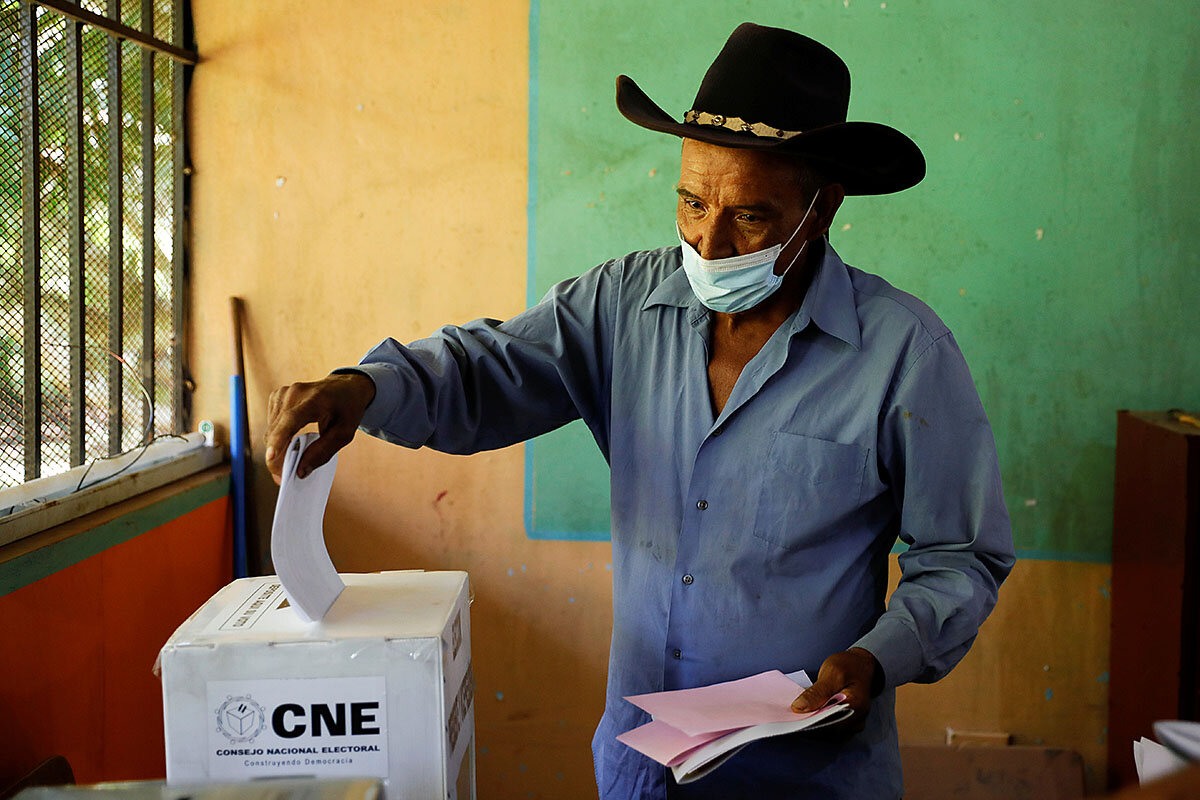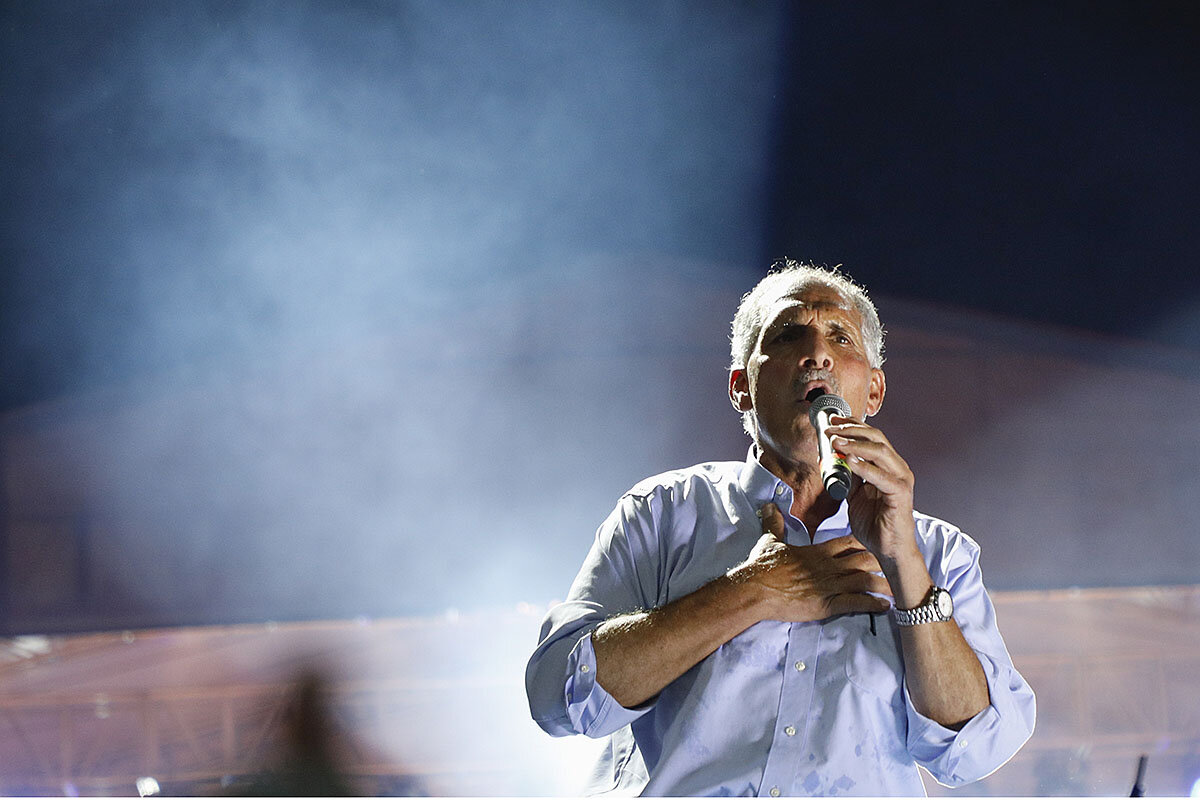How citizen observers saved Honduran democracy from violence
Loading...
| TEGUCIGALPA, Honduras
The spectators cheered as each vote was counted as if watching a soccer game. But the stakes were much higher than a sports match.
In a worn-down school in a working-class neighborhood in the Honduran capital, dozens clamored during Sunday’s presidential election for no less than the future of Honduran democracy.
They joined citizens across the Central American nation – where democracy has withered since a 2009 coup – who became self-appointed electoral observers for the night. It was an effort to help fend off the kind of fraud that has marred the electoral process in Honduras over the past decade.
Why We Wrote This
Confidence in democracy has dipped across Latin America. But a presidential race in Honduras exceeded expectations – thanks to citizen observers – and could boost other democratic movements in the region.
And their efforts seem to have paid off. This week Xiomara Castro, candidate for the leftist Libre Party and former first lady whose husband was deposed in the coup, was declared winner and becomes Honduras’s first female president. While stores were boarded up in Tegucigalpa and citizens feared a contested result, her rival Nasry “Tito” Asfura – current Tegucigalpa mayor and member of the ruling National Party – conceded defeat. The celebrations this week have been jubilant, with the sounds of fireworks instead of the tear gas canisters and live bullets that have echoed after races in previous years.
It’s a surprising advance for a country ranked one of the four weakest democracies in Latin America just two years ago, according to a study published by the International Institute for Democracy and Electoral Assistance in Sweden. At a time of worldwide democratic erosion, Hondurans showed that citizens, with peaceful protest, can pressure governments to respect the democratic process.
“[The message is that] democracy continues to be an important value for Hondurans,” says Julio Raudales, political analyst and vice rector at the National Autonomous University of Honduras. “And that we want to resolve our conflicts the democratic way and not through violence.”
A long night
Pre-election polls gave Ms. Castro a wide lead, driven by Hondurans’ collective frustration with soaring poverty, violence, and corruption under President Juan Orlando Hernández. But her supporters knew victory was far from certain – and mobilized to do their part to safeguard the results.
They turned out early and stayed at voting centers long after the last ballot was cast, forcing the five-person voting boards established inside the classrooms to hold up every ballot for inspection by the crowd, which protested any miscounted vote the same way sports fans heckle a referee who makes a bad call. This citizen observation practice, which allows Hondurans to watch the vote count from a distance so as not to interfere, was eagerly embraced this year in a bid to increase transparency of the electoral system. Some National Party supporters showed up too, but they were far outnumbered by Libre members at the school Sunday.
“We’re observing the process and verifying that the same shameless act that always happens doesn’t happen again,” says Brian Wilson, a 30-something unemployed Honduran at the school Sunday night.
At the top of his mind and that of citizens across the country was the memory of the 2017 race, when the election system mysteriously blacked out while the opposition candidate led, only to have his lead reversed when it came back online. Mr. Hernández was declared winner, and Hondurans flooded the streets in protest. At least 30 were killed in a subsequent crackdown. Mr. Wilson and his fellow self-appointed election monitors braced for the same outcome this time.
But surpassing even their own expectations Sunday, they didn’t have to.
Gustavo Irias, director of the Honduran Center for the Study of Democracy, commended the high voter turnout – 69% – and the decision of many voters to stay for hours to ensure a fair count.
“These youth showed up and determined the results that we have now, which is the overwhelming rejection of the continuity of this regime and a clear desire for change,” Mr. Irias says.
The youth monitors, most under 40, heard about the effort in different ways – from a political party, a friend, or from just seeing the crowd. But they were united in their goal. “What was shown was the desire of the people to save the people,” says Aaron Hernandez, a young truck driver watching the vote tally at the school Sunday.
The push for transparency
Libre party member Neesa Medina attributes the legitimacy of the vote to the opposition party’s maturity process in the decade since its founding in the aftermath of the coup.
In its first two elections, Libre was at a disadvantage because its members were still learning the rules of the political game, long run by the country’s two dominant parties, National and Liberal, she says.
This time, the party better understood the rules, and thus how to ensure fairness, she says. For the first time, Libre earned a seat on the National Electoral Council (CNE), and its representative Rixi Moncada took a lead demanding transparency for the entire cycle. In the lead-up to election day, the party trained members to participate in the electoral counting tables and identify and report irregularities, according to Ms. Medina.
It also went into elections with a clear message to supporters: Vote early, and come back at closing time. “When there is more training and experience, there are fewer chances for fraud or manipulation,” says Ms. Medina.
By 5 a.m. on election day, lines snaked around voting centers. When polls closed, citizens stayed put. “I’ve never seen so much euphoria and participation in elections,” says Fidel Mejia, a vendor watching the votes tallied Sunday.
Still, the day did not pass without some glitches, including polling stations opening late, reports of vote buying, and an attempted cyberattack on CNE servers, according to election observer Carla García, a Honduran activist who was part of an accredited observation mission.
National Party voter Gladys Martínez recognized the election process as transparent but said she would wait until 100% of votes are counted to recognize a winner. “They’ve already proclaimed themselves winners, which isn’t correct,” Ms. Martínez says.
Still, none of these irregularities or disagreement was enough to discredit the results, Ms. García says.
“We can consider the process completely successful, not because a certain person won,” Ms. García says. “But because the people demanded respect and the decision of the people was respected.”








